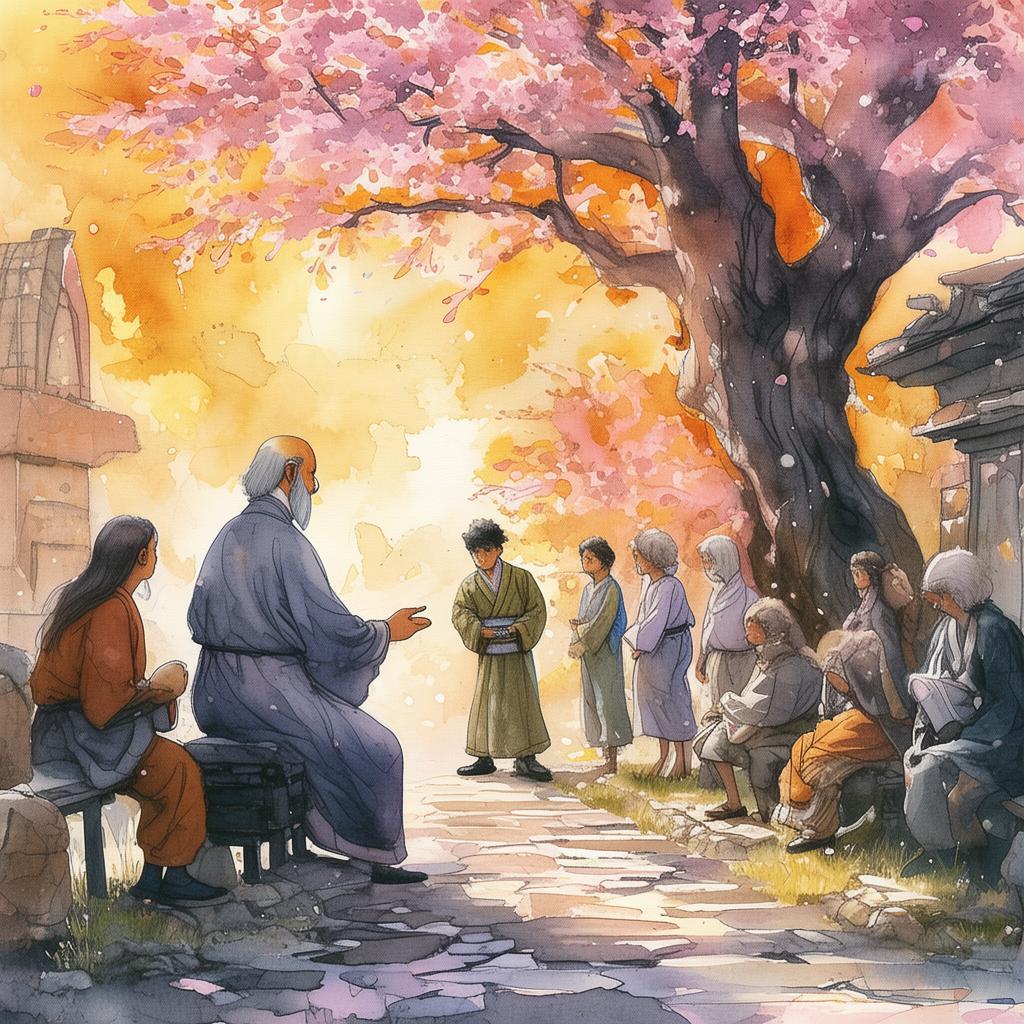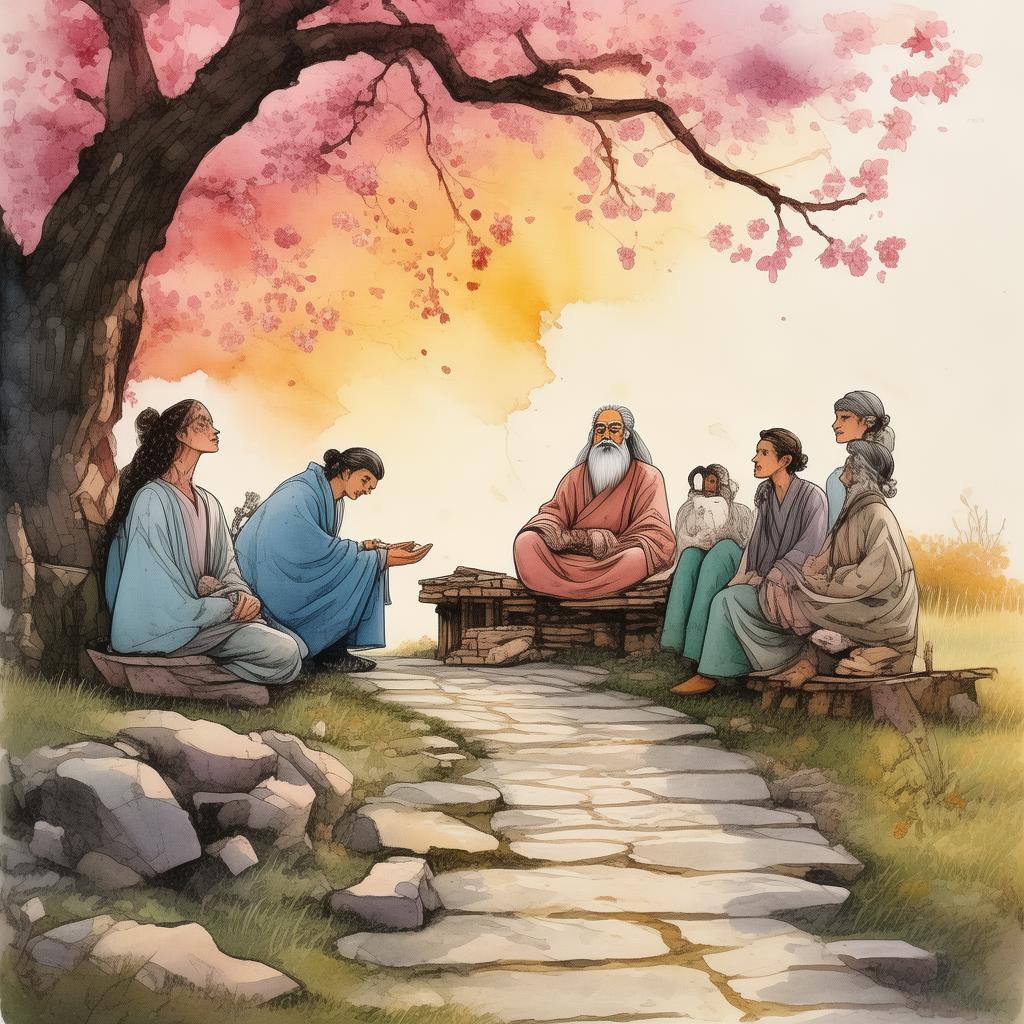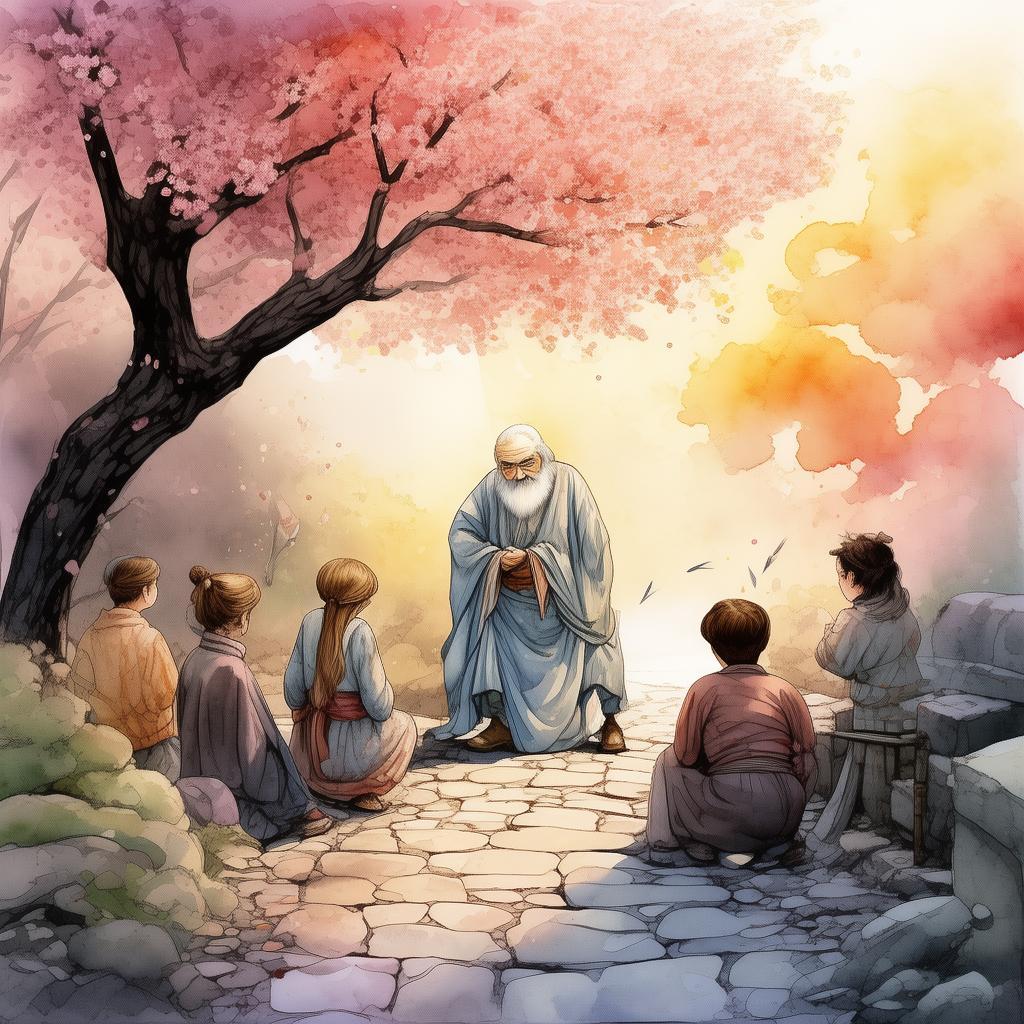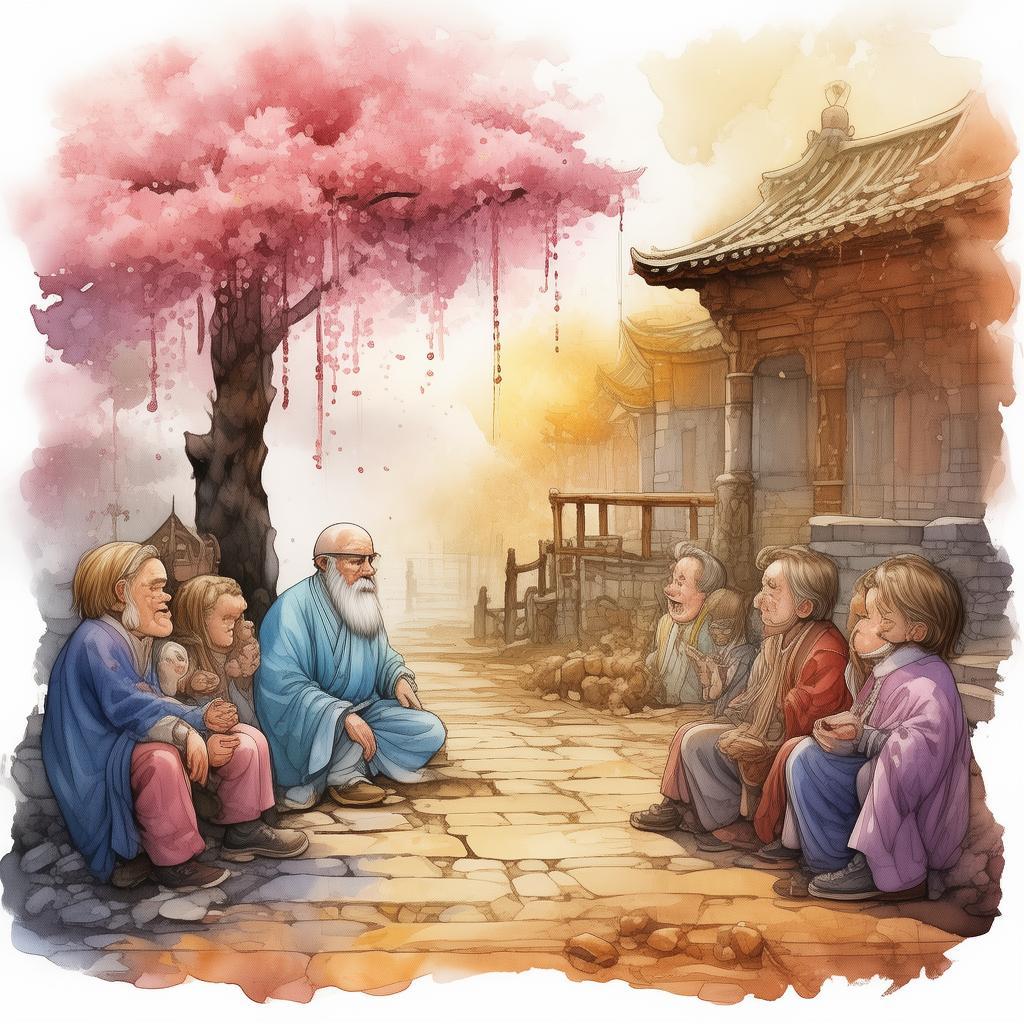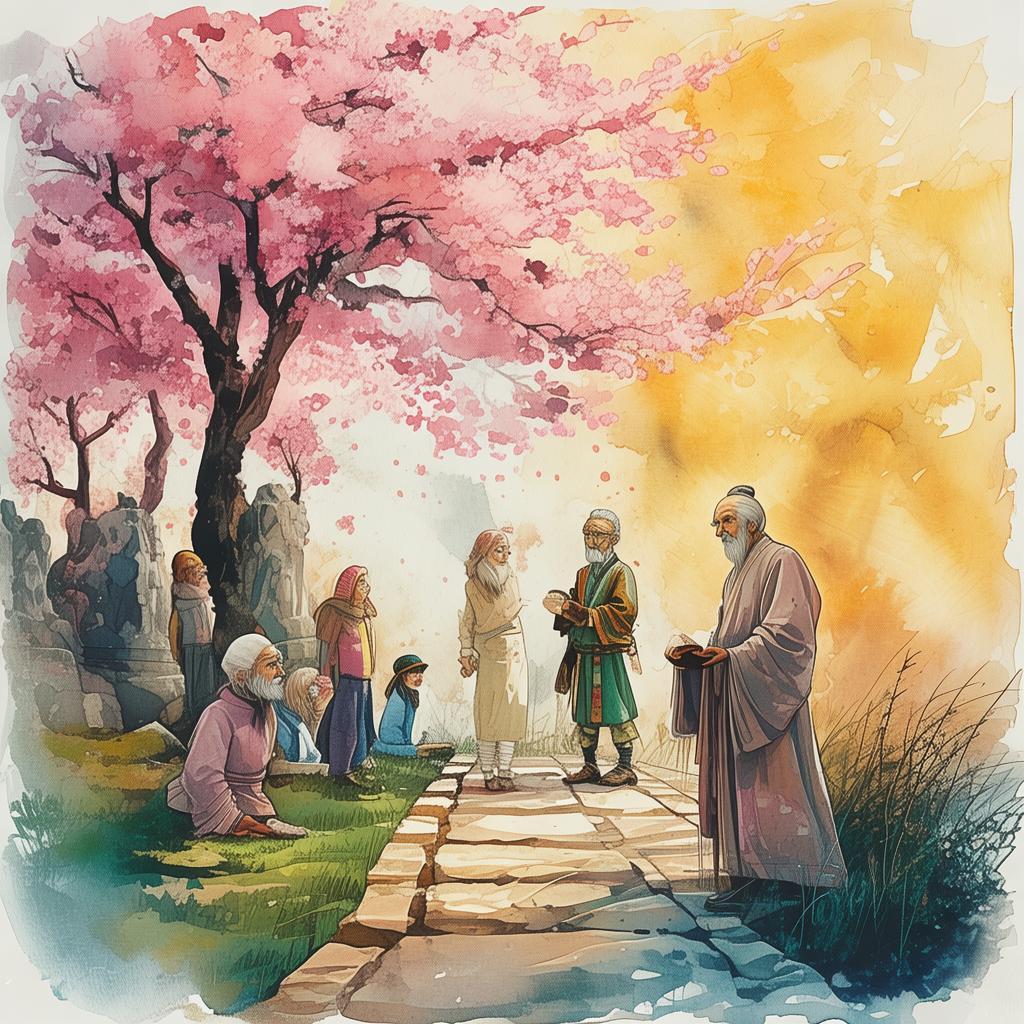The Tangled Webs of Deceit: A Dynasty's Fall
In the land of Lingxia, where proverbs and sayings held the weight of law, there stood a mighty dynasty known as the Tianming Empire. The empress, Lady Jing, ruled with an iron fist, her decisions often guided by ancient proverbs that had become the backbone of her governance. The empire thrived under her rule, its wealth and influence spreading far and wide. However, the empire's prosperity was not without its cracks, and as the story unfolds, we see the seeds of its downfall being sown.
The empress had a trusted advisor, Master Yi, a wise and learned man who often reminded her of the wisdom in the ancient proverbs. One of the proverbs he frequently invoked was "The house of the wise falls without a cause." To Lady Jing, this proverb was a beacon of confidence in her rule, for she believed that as long as she was guided by the words of the ancients, her empire would stand firm.
Little did she know, Master Yi harbored a secret ambition: to become the empress herself. To achieve this, he began to weave a web of deceit, manipulating events and people around him to appear as the chosen successor. He used his knowledge of proverbs to gain the empress's favor and to turn the tide of public opinion in his favor.
The first crack appeared when a minor official, young and ambitious, rose to prominence through the merit of his own hard work and intelligence. Lady Jing, impressed by his ability, asked Master Yi if there was a proverb that could describe this exceptional man. Master Yi, seeing an opportunity, replied with "The wise rise, and the foolish fall," subtly implying that the young official was destined for greatness, while those who relied on proverbs alone would be left behind.
As the empire's wealth grew, so did the greed of its officials. Master Yi used his influence to distribute power and wealth, making sure that the most loyal and influential among them owed their positions to him. He would remind them of the proverb, "The wise man uses his wealth to gain power, and the powerful man uses his power to keep his wealth," ensuring their loyalty.
However, as the empire grew in power, so did its enemies. Foreign invasions and rebellions began to threaten its borders. The empress, confident in her proverbs, ignored the signs of impending doom, convinced that the saying "The wise man fears the future and plans for it" was proof that her empire would withstand any threat.
Master Yi, sensing the empire's decline, began to push for a succession plan that would see him take the throne. He whispered to the empress that the proverb "He who waits on another's word loses his own" applied to her, and that she needed to act quickly to secure her legacy.
In the midst of his scheming, Master Yi faced a test of his own: the arrival of a cunning foreign diplomat who understood the power of proverbs and sought to manipulate them to his advantage. This diplomat, cleverly using proverbs to his own ends, began to sow discord among the ranks, weakening the empire's hold on power.
The empress, caught in a web of deceit and her own overconfidence, could no longer discern truth from lie. She was torn between her trust in Master Yi and her growing suspicion of his true intentions. Meanwhile, the young official, who had become a symbol of hope for the empire, was now being pushed to the edge by Master Yi's cunning.
As the empire teetered on the brink of collapse, a rebellion erupted in the heartland. The empress, still clinging to her proverbs, ordered the military to quell the rebellion with the phrase, "The wise ruler knows when to forgive and when to fight." But her generals, loyal to Master Yi, hesitated, seeing an opportunity to rise against the empress and her advisor.
The climactic moment came when the empress, in a fit of rage and despair, confronted Master Yi, asking him what proverb he was following to betray her. Master Yi, now revealed as a false prophet, coldly replied, "The wise man knows when to act, and the foolish man waits for fate," and he pushed her from her throne.

With the empress's fall, the Tianming Empire crumbled, and Master Yi took the throne, but his rule was short-lived. The diplomat, who had watched the empire's fall from afar, saw his chance and invaded, toppling Master Yi's regime with ease. The Tianming Empire was no more, its legacy reduced to ruins and the wisdom of its proverbs turned to irony.
The story ends with the young official, now a seasoned leader, ascending to the throne. He knew the cost of his rise was too heavy a price for his people to bear. As he sat upon the throne, he realized that the proverbs of old were no longer enough to guide his rule. Instead, he would have to learn from the mistakes of the past, creating a new path for his empire—a path guided by more than just ancient words.
The Tangled Webs of Deceit: A Dynasty's Fall serves as a cautionary tale, reminding readers of the dangers of blind faith in proverbs and the importance of adaptability and compassion in the face of power.
✨ Original Statement ✨
All articles published on this website (including but not limited to text, images, videos, and other content) are original or authorized for reposting and are protected by relevant laws. Without the explicit written permission of this website, no individual or organization may copy, modify, repost, or use the content for commercial purposes.
If you need to quote or cooperate, please contact this site for authorization. We reserve the right to pursue legal responsibility for any unauthorized use.
Hereby declared.

